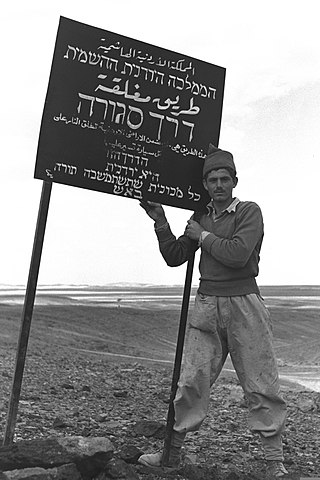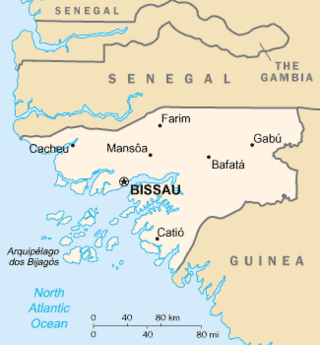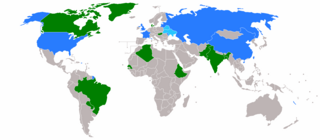
The United Nations Integrated Mission in East Timor (UNMIT) was established on 25 August 2006 by UN Security Council Resolution 1704. Its objectives are "to support the Government in consolidating stability, enhancing a culture of democratic governance, and facilitating political dialogue among Timorese stakeholders, in their efforts to bring about a process of national reconciliation and to foster social cohesion". In its most recent resolution on UNMIT, the Council extended its mandate until 26 February 2012. UNMIT and ISF troops left the country at the end of 2012.

The United Nations Mission in East Timor (UNAMET) was established by Security Council Resolution 1246 on 11 June 1999 for a period up to 31 August 1999. By Security Council Resolution 1257 of 3 August UNAMET was extended to 30 September 1999.

United Nations Security Council Resolution 109 was adopted on 14 December 1955. After being instructed by the General Assembly to consider the applications for membership of Albania, Austria, Bulgaria, Cambodia, Ceylon, Finland, Hungary, Ireland, Italy, Jordan, Laos, Libya, Nepal, Portugal, Romania, and Spain, the Security Council recommended all 16 countries for admission to the United Nations.
United Nations Security Council Resolution 139 was adopted unanimously on June 28, 1960. After examining the application of the Federation of Mali for membership in the United Nations, the Council recommended to the General Assembly that the Federation of Mali be admitted.
United Nations Security Council Resolution 158, adopted unanimously on September 28, 1960, after examining the application of the Republic of Senegal for membership in the United Nations, the Council recommended to the General Assembly that the Republic of Senegal be admitted.
United Nations Security Council Resolution 159, adopted unanimously on September 28, 1960, after examining the application of the Republic of Mali for membership in the United Nations the Council recommended to the General Assembly that the Republic of Mali be admitted.
United Nations Security Council Resolution 178, adopted unanimously on April 24, 1963, after hearing of violations of Senegalese territory by Portuguese military forces from Portuguese Guinea, the Council deplored the incident at Bouniak as well as any incursion by the Portuguese and requested that they honor their declared intention to "scrupulously respect the sovereignty and territorial integrity of Senegal".
United Nations Security Council Resolution 180, adopted on July 31, 1963, affirmed that Portugal claiming its overseas territories as part of metropolitan Portugal was contrary to the principles of the Charter. The Council deemed Portugal's actions and attitude as seriously disturbing to peace and security in Africa.
United Nations Security Council Resolution 218, adopted on November 23, 1965, after recalling previous resolutions on the topic, and Portugal's failure to implement them, the Council again demanded that Portugal withdrawal its military presence from her colonies and enter negotiations with political parties there regarding independence.
United Nations Security Council Resolution 226 was adopted unanimously by the United Nations Security Council on October 14, 1966. The Council urged the government of Portugal to prevent foreign mercenaries in the Portuguese territory of Angola from interfering in the domestic affairs of the Democratic Republic of the Congo (DRC).
United Nations Security Council Resolution 275, adopted on December 22, 1969, after a letter from the representative of Guinea and observing that these incidents by Portugal jeopardize international peace and security, the Council called upon Portugal to desist from violating the sovereignty and territorial integrity of Guinea. The Council deeply deplored the loss of life and heavy damage to several Guinean villages inflicted by the action from Guinea-Bissau, a territory under Portuguese administration, solemnly warning Portugal that if such acts were to be repeated in the future the Council would consider further steps to give effect to the resolution. It also called upon Portugal to release a motor barge by the name of Patrice Lumumba and all of its passengers.
United Nations Security Council Resolution 289, adopted unanimously on November 23, 1970, following several previous incursions into the Republic of Guinea by Portuguese troops, the Council demanded the immediate withdrawal of all external armed forces, mercenaries and military equipment and decided that a special mission, to be formed after consultation between the President of the Security Council and the Secretary-General, would be sent to the territory.
United Nations Security Council Resolution 290, adopted on December 8, 1970, after more invasions of the territory of the Republic of Guinea by naval and military units of Portugal on November 22/23 and 27/28, the Council reaffirmed its numerous previous resolutions on the topic, including the right of the peoples of Angola, Mozambique and Portuguese Guinea to be freed from the Portuguese Empire ruled by the Estado Novo regime. The Council endorsed the conclusions of the report by the Special Mission to the Republic of Guinea, strongly condemned the Portuguese Government, demanded that full compensation be paid to the Republic and declared that Portuguese colonialism was a serious threat to the peace and security of Africa.
United Nations Security Council Resolution 273, was adopted on December 9, 1969, after a complaint from Senegal regarding the shelling of the Senegalese village of Samine from a Portuguese base in Begene, the Council condemned the action and called upon Portugal to desist from violating the sovereignty and territorial integrity of Senegal.
United Nations Security Council Resolution 294, adopted on July 15, 1971, disturbed by the longstanding Portuguese violations of Senegalese territory and the recent laying of mines inside that nation which was giving shelter to independentist guerrillas of PAIGC, during the Portuguese Colonial War. The Council noted Portugal's failure to comply with previous resolutions and demanded that they immediately cease all acts of violence and destruction in Senegal and respect her territorial integrity. The Council included the usual condemnations and requested that the Secretary-General urgently send a special mission of members of the Council assisted by their military experts to carry out an inquiry into the facts of the situation and make recommendations.
United Nations Security Council Resolution 302, adopted on November 24, 1971, after reaffirming previous resolutions on the topic, the Council expressed its appreciation for the work accomplished by the Special Mission established in resolution 294. The Council deplored the lack of co-operation with the Special Mission by the Portuguese and called upon its government to take effective measures so that the territorial integrity of Senegal would be respected and to prevent acts of violence and destruction against the territory and its people.

United Nations Security Council resolution 1216 was adopted unanimously on 21 December 1998. After expressing concern at the crisis and humanitarian situation in Guinea-Bissau, the Council called for the immediate establishment of a government of national unity in the National People's Assembly and the holding of elections by the end of March 1999.

The 2015 United Nations Security Council election was held on 15 October 2015 during the 70th session of the United Nations General Assembly, held at United Nations Headquarters in New York City. The elections are for five non-permanent seats on the UN Security Council for two-year mandates commencing on 1 January 2016. In accordance with the Security Council's rotation rules, whereby the ten non-permanent UNSC seats rotate among the various regional blocs into which UN member states traditionally divide themselves for voting and representation purposes, the five available seats are allocated as follows:

The United Nations Supervision Mission in Syria (UNSMIS) was a United Nations peacekeeping mission in Syria, set up in 2012 as a result of United Nations Security Council Resolution 2043 in response to the Syrian Civil War. It was commanded by Norwegian Major General Robert Mood until 20 July 2012 followed by Lieutenant General Babacar Gaye from Senegal. Although observers remain in the country, Mood suspended their mission on June 16, 2012, citing "escalating violence". Observers will conduct no further patrols and stay in their current positions until the suspension is lifted. On 20 July 2012, the Security Council extended UNSMIS for a final period of 30 days. According to resolution 2059, the Council would only consider more extensions in the event that the Secretary-General reports and the Security Council confirms the cessation of the use of heavy weapons and a reduction in the level of violence sufficient by all sides to allow UNSMIS to implement its mandate.

The 1967 United Nations Security Council election was held on 6 November 1967 during the Twenty-second session of the United Nations General Assembly, held at United Nations Headquarters in New York City. The General Assembly elected Algeria, Hungary, Pakistan, Paraguay, and Senegal, as the five new non-permanent members of the UN Security Council for two-year mandates commencing on 1 January 1968. Algeria and Senegal saw their first election into the council.




